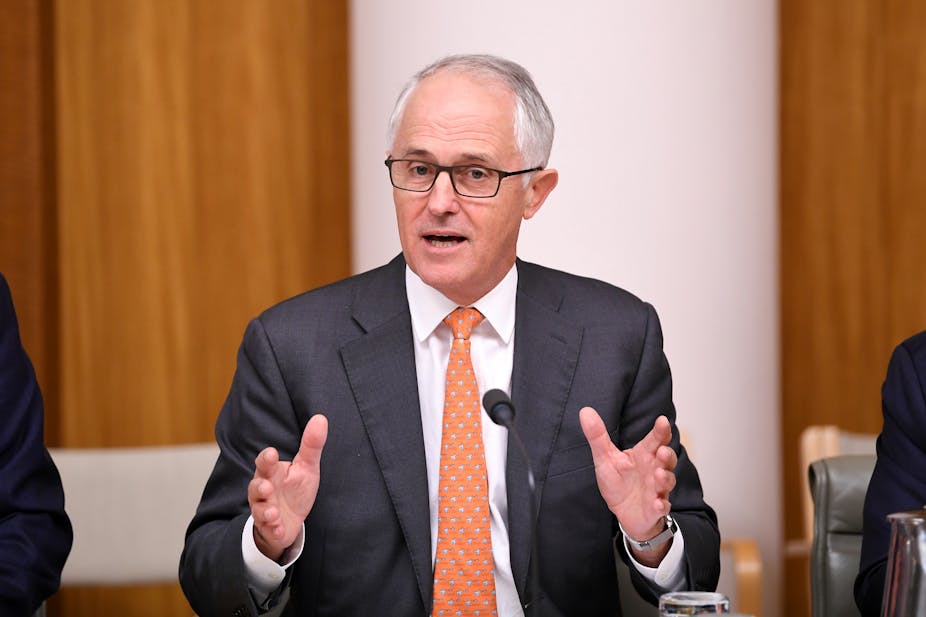Malcolm Turnbull is continuing his pitch to assert “Australian values” and national identity by toughening the requirements that people seeking Australian citizenship will have to meet.
Changes to be announced by Turnbull and Immigration Minister Peter Dutton mean aspiring citizens will have to speak competent English, have at least four years’ permanent residency, “and commit to embracing Australian values”.
The higher citizenship hurdles follow Tuesday’s shakeup of the visa arrangements for bringing in skilled foreign workers temporarily. The government’s stated aim in replacing 457 visas with a new system is to put Australian workers and Australian values first.
The new citizenship requirements will include:
requiring applicants to pass a stand-alone English test of reading, writing and listening (with exemptions for permanent or enduring incapacity and for children);
extending from one to four years the time an applicant must have been a permanent resident;
putting into the citizenship test “more meaningful questions that assess an applicant’s understanding of – and commitment to – our shared values and responsibilities”;
requiring people to show what they have done to “integrate into and contribute to the Australian community” – such as getting a job, joining community organisations and sending their children to school;
limiting the times someone can fail the citizenship test to three - currently there is no limit; and
failing automatically people who cheat.
“The Turnbull government will strengthen Australian citizenship by putting Australian values at the heart of citizenship processes and requirements,” the statement says.
“Membership of the Australian family is a privilege and should be granted to those who support our values, respect our laws and want to work hard by integrating and contributing to an even better Australia.”
On Wednesday, Turnbull told a business function: “We are making changes so that the practices and principles of those obtaining citizenship are consistent with our cultural values.”
As debate continued over the reformed arrangements for bringing in temporary workers, Opposition Leader Bill Shorten – who has been calling for an overhaul of the scheme – said the government “isn’t doing any crackdown, it’s doing a con-job”.
“Let’s see in 12-months’ time how many people will still be here on temporary work visas,” Shorten said.
He said looking at the condensed list of occupations, “only one in ten visa holders will be affected. … This is cosmetic, it’s not real.
"The fact of the matter is that for bakers and builders, for cooks, for nurses, for mechanics, they can still come in from overseas.
"These jobs should be going to Australians, full stop,” Shorten said.
The government has not been able to provide any estimate of the reduction in entrants that it expects under the new arrangements. Turnbull said on Wednesday: “There will be less and they will stay for less time.”
Turnbull defended having cooks and chefs remain on the list of eligible occupations by saying that “they’re on the list plainly because employers are saying they can’t find Australians to do the work”. But he agreed more Australians needed to be trained in these areas.
“That is one of the enduring skills gaps and that is where we need to make sure that our training fund is focused on and employers are focused on – training Australians to do that work.” Details of the planned national training fund, into which employers bringing in workers will pay, will be announced in the May budget.
The visa changes appear to be causing some ripples in India, from which Turnbull returned last week. Indians have made up about one-quarter of the 457 visa holders.
The ABC reported that India’s ministry of external affairs had said it was “examining the consequences” of the new Australian policy, and would look at the matter “in the context” of trade negotiations. Negotiations on a free-trade deal have previously stalled, with one issue being India’s desire for greater access to the Australian labour market.

